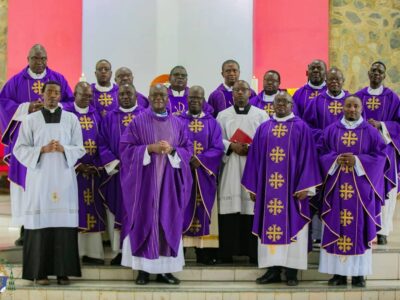Kitwe High Court judge Evaristo Pengele has revealed that murder cases declined to 32 in 2022 from 46 cases received the prior year.
Judge Pengele said in comparison between the number of cases received in 2022 with those of 2021, there was a notable reduction in the murder cases, aggravated robbery and cases of causing death by dangerous driving.
“While in 2021 we received 46 murder cases compared to 32 cases in 2022. Whereas in 2021 we received 11 aggravated robbery cases, in 2022 we received six.
In 2021, we had 28 cases of causing death by dangerous driving, while in 2022 we had 22 cases,” Judge Pengele said.
He said this on Monday during the ceremonial opening of the High Court criminal sessions.
The Judge also revealed that a total of 158 criminal cases were handled in 2022 compared to 136 cases in 2021, representing an increase of 22 cases.
Of the 158 criminal cases received in 2022, 85 were criminal trials, out of which 66 were cause listed and heard.
“Out of the 66 criminal trials that were cause listed in the year 2022, 32 were Murder Cases, six were aggravated robbery cases, six were vandalism cases and 22 were cases of causing death by dangerous driving,”Judge Pengele said.
Judge Pengele said in the year 2022, 28 cases were committed to the High Court for sentencing, out of which 23 were listed as at December 31, 2022.
He said other cases in the year 2022 were 14 appeals, 28 Confirmation Cases and three bail applications.
On infrastructure, Judge Pengele said inadequate and dilapidated court infrastructure are affecting effective dispensing of justice in the district.
Judge Pengele indicated that Kitwe district had only two court rooms available against six judges, making it difficult for timely conclusion of court cases.
Judge Pengele said only one court room was available for use for five judges hence resorting to holding trials in chambers as the last resort.
“We also have a lack of adequate office equipment and furniture, limited human resource and motor vehicles for Kalulushi, Chililabombwe and Chambishi,” Pengele said.
He said lack of adequate space was delaying cases from being disposed of and holding sessions in chambers which defeats the sacrosanct principle that courts were open as chambers restrict the number of people that attend the proceedings.












Comments